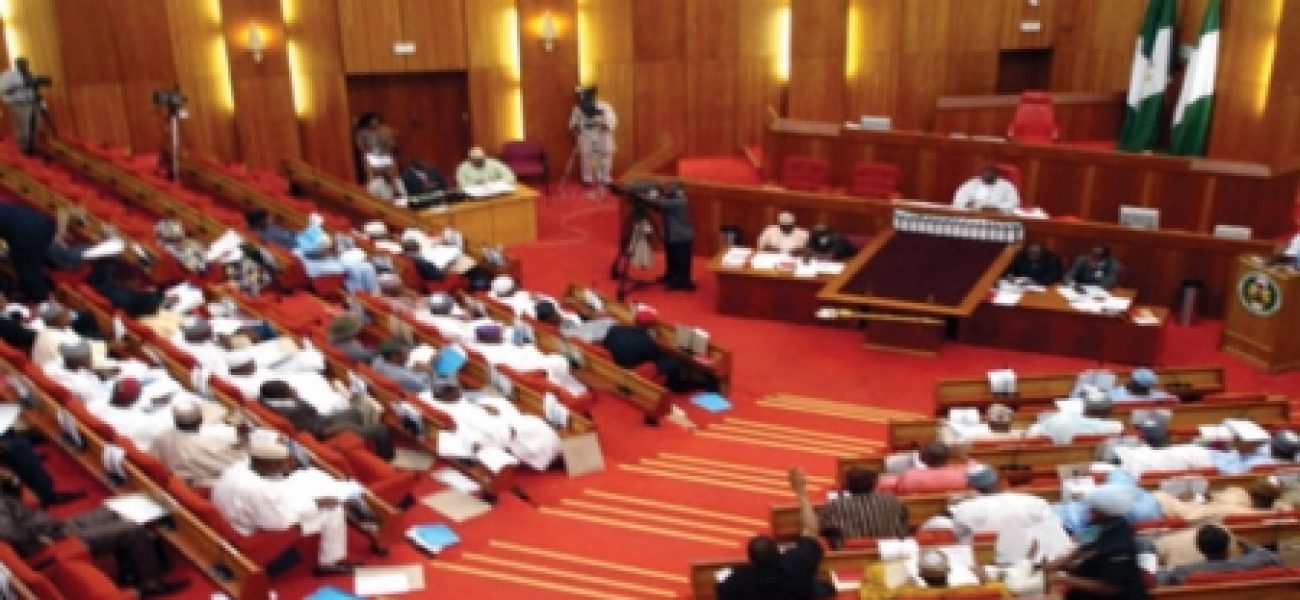 The Senate considered the report of its Joint Committee on National Security and Intelligence; and Judiciary, Human Rights and Legal Matters, which conducted an enquiry on the alleged extra judicial killing of 8 persons in Apo, Abuja. It would be recalled that on September 20, 2013, Nigerian security forces raided an uncompleted building inhabited by squatters and killed about 8 persons who they alleged were members of the dreaded Boko-Haram sect.
The Senate considered the report of its Joint Committee on National Security and Intelligence; and Judiciary, Human Rights and Legal Matters, which conducted an enquiry on the alleged extra judicial killing of 8 persons in Apo, Abuja. It would be recalled that on September 20, 2013, Nigerian security forces raided an uncompleted building inhabited by squatters and killed about 8 persons who they alleged were members of the dreaded Boko-Haram sect.
The Committee, chaired by Senator Mohammed Magoro (PDP, Kebbi), in its findings noted that the death of the eight people and wounding of eleven others was not a case of extra-judicial killing but the outcome of hastily executed operation, describing the killings as “tragic and regrettable.” The report mentioned that investigations by security services revealed a real terrorist threat and that there were plans by Boko Haram to attack the FCT on September 22nd, 2013. It was also revealed that 4 of the suspects arrested in connection with the raid had confessed to be Boko Haram members. The report however noted that majority of the occupants in the uncompleted building who were injured in the raid were migrant workers who unknowingly co-habited with Boko Haram elements.
While admitting that the conduct of the operation that led to these killings leaves much to be desired, the Committee commended the anti-terrorism strategy of the Federal Government describing it as still being appropriate and effective. It further described the Apo incident as an isolated case in view of the fact that since January 2013 till the date of the report, security agencies had carried out about 153 operations and many arrests made within Abuja without expending a single bullet. Many will strongly disagree with the Senate on this point considering that Nigerian security forces have come under severe criticism from both foreign and domestic bodies for its country wide anti-terrorist strategy.
The Committee’s report was not without criticism even by fellow lawmakers. Senator Sani Saleh (APC- Kaduna) disassociated himself from the report saying that the operation did not consider civilian safety and that the report failed to state whether those killed were Boko Haram members. Senator Sahabi Alhaji Ya’u (PDP, Zamfara) also criticised the report saying that the issue before the Committee was for it to find out whether those killed had any links to Boko Haram, and if the killings were extra-judicial or not. Some observers are of the opinion that the Senate should have called out the agency that carried out the operation – the State Security Service (SSS) for not taking into consideration the rights of innocent citizens who were caught up in the incidence instead of absolving it of wrongdoing.
Government security forces have been accused of responding to the Boko Haram threat in a heavy-handed manner. Several human rights groups have documented cases of extra-judicial killings of citizens and other human rights abuses. Reports are rife of arbitrary arrests and raids across the northeast where Boko Haram is most active. These groups believe that these abuses help to further fuel the group’s campaign of violence.
There are also questions on the effectiveness of security forces in preventing collateral damages in its anti-terrorist operations. Several groups have called on the government to review its overall strategy on the country’ security situation, particularly in areas such as Adamawa, Borno and Yobe states which are currently under emergency rule. Recently, the emergency rule in these states was extended and there are fears that human rights abuses would continue to flourish in these states if the government does not address full-on, cases of abuse.
One cannot deny the fact that tied to the issue of public safety, is a larger issue of government’s failure to address widespread impunity, corruption, poverty and unemployment in the country. In considering the Committee’s report, the Senate adopted resolutions calling on the government to improve the quality of governance, tackle youth unemployment and closely supervise security operations at the tactical level. However, with recent happenings in the country such as stories in the public media of widespread looting and corruption, it appears the government is far from making any serious improvements in the quality of governance.

